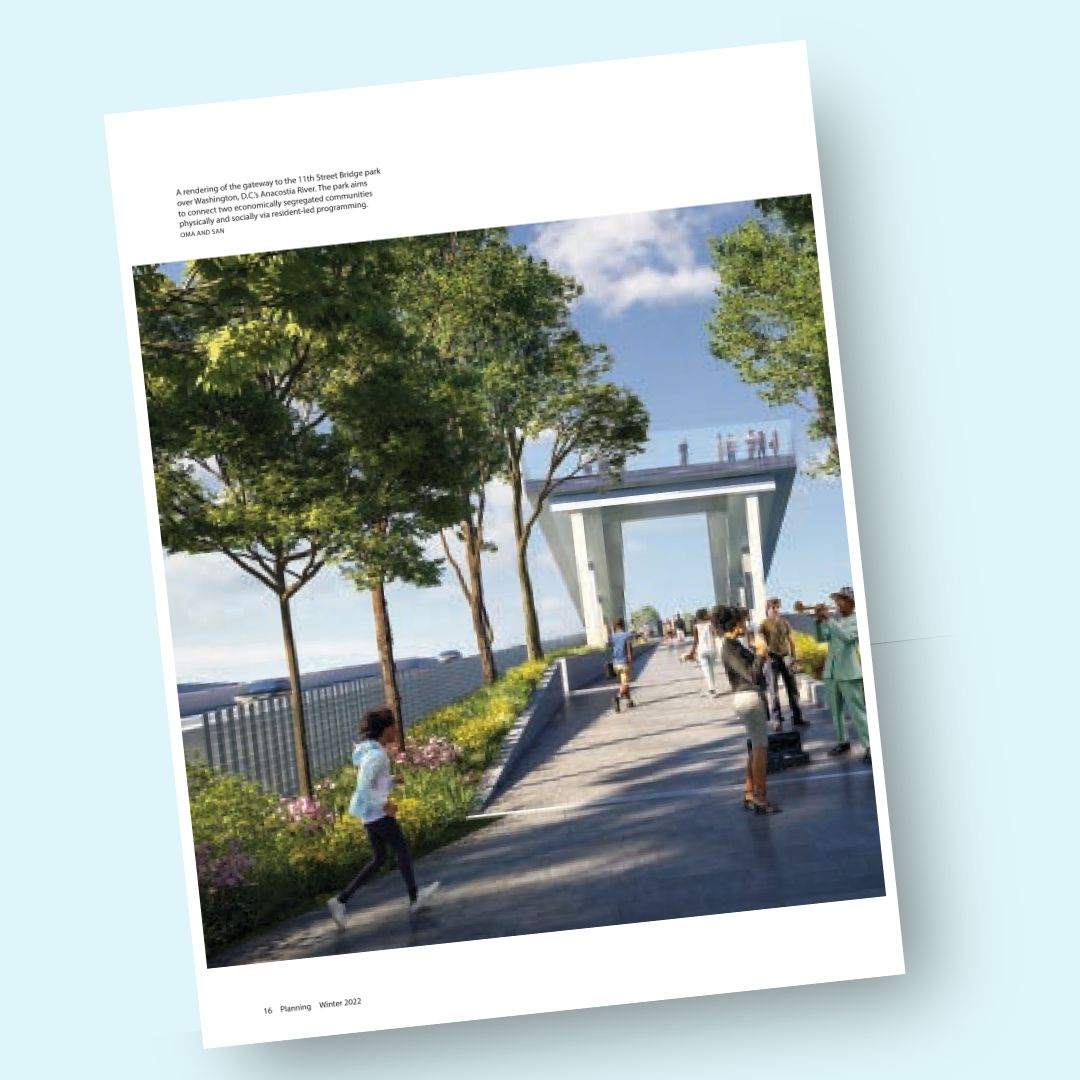
Brookings Metro Senior Fellow Xavier de Souza Briggs and Full Frame Initiative CEO Katya Fels Smyth outline a framework grounded in the Wellbeing Blueprint to guide new investments in the built environment.
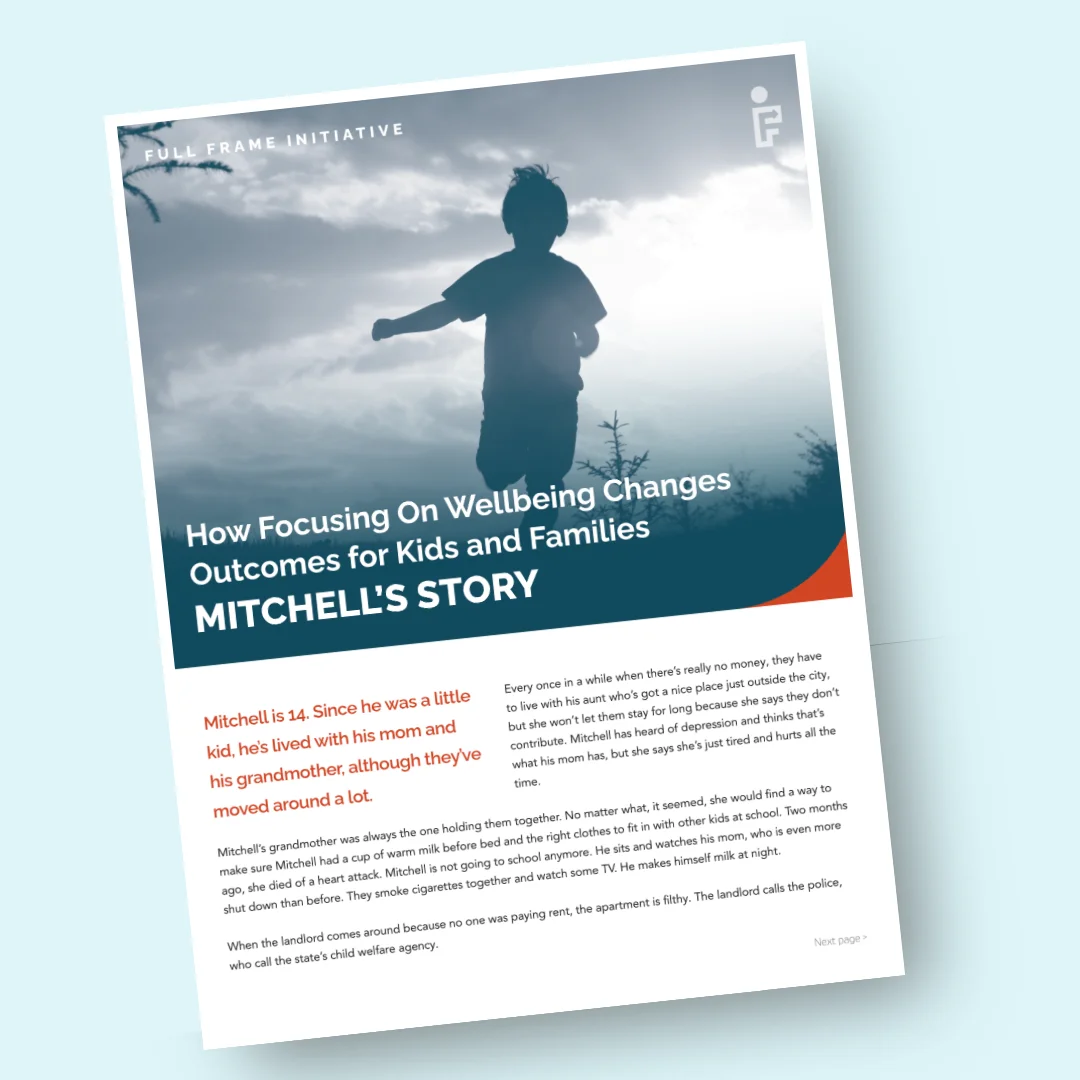
Mitchell's story is familiar, like those of a significant number of youth and families involved in the child welfare system for neglect.
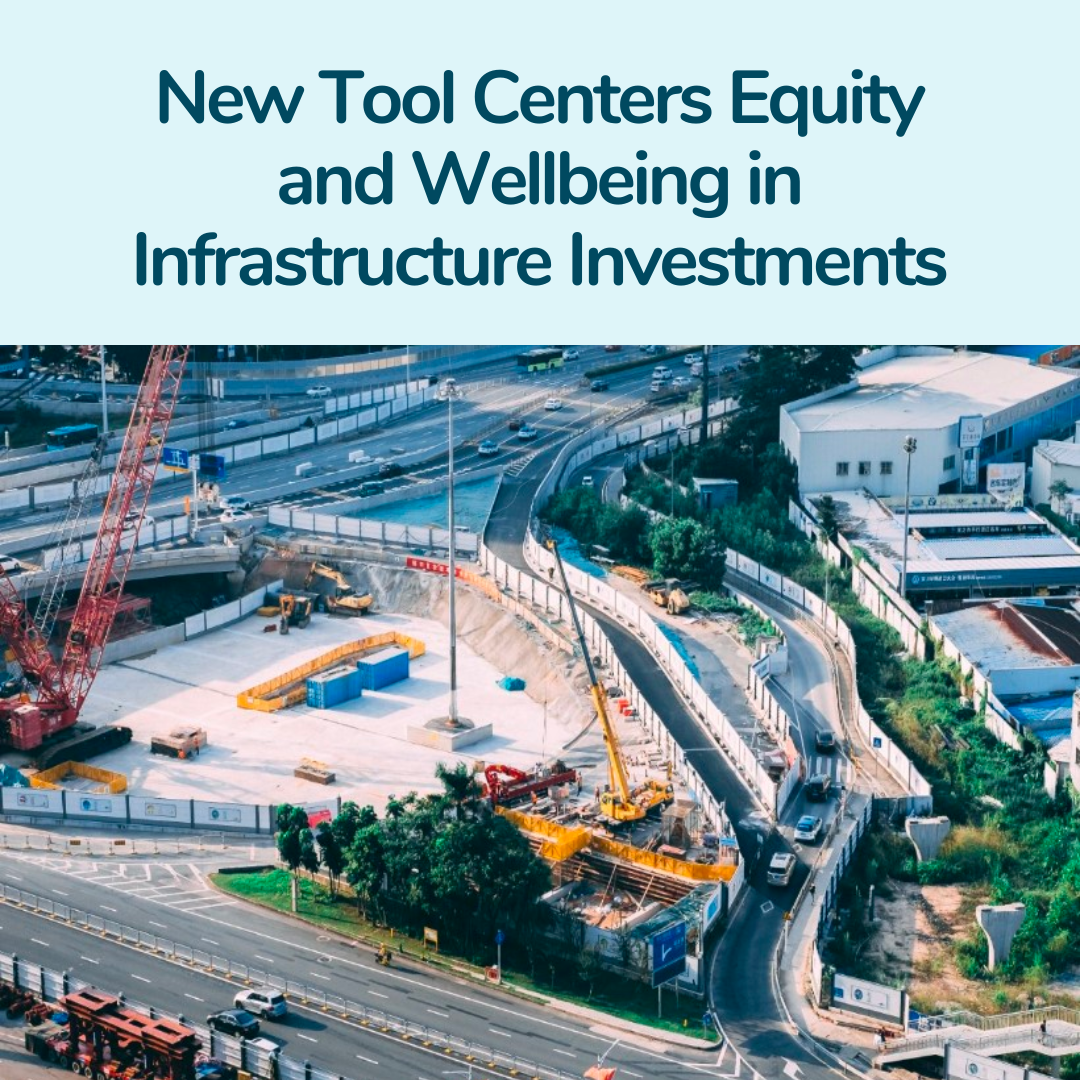
Infrastructure investments aren’t neutral. Imagine a future where people’s wellbeing is the starting place for how decisions are made about what, where, when and even whether we build. Our new tool is a step towards that future.
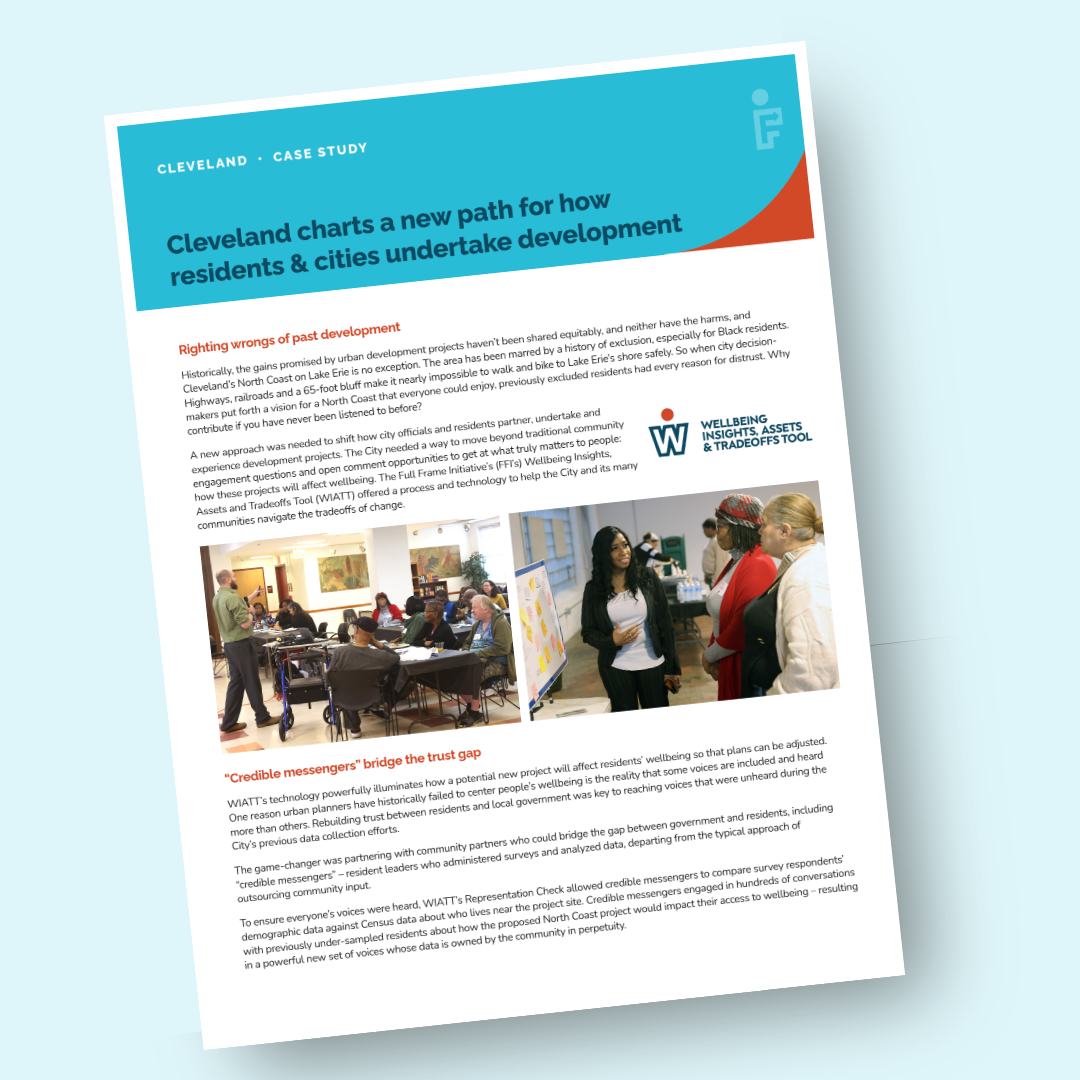
Learn how we partnered with the City of Cleveland to transform its approach to development projects by implementing our Wellbeing Insights, Assets & Tradeoffs Tool (WIATT) to prioritize wellbeing and equity.
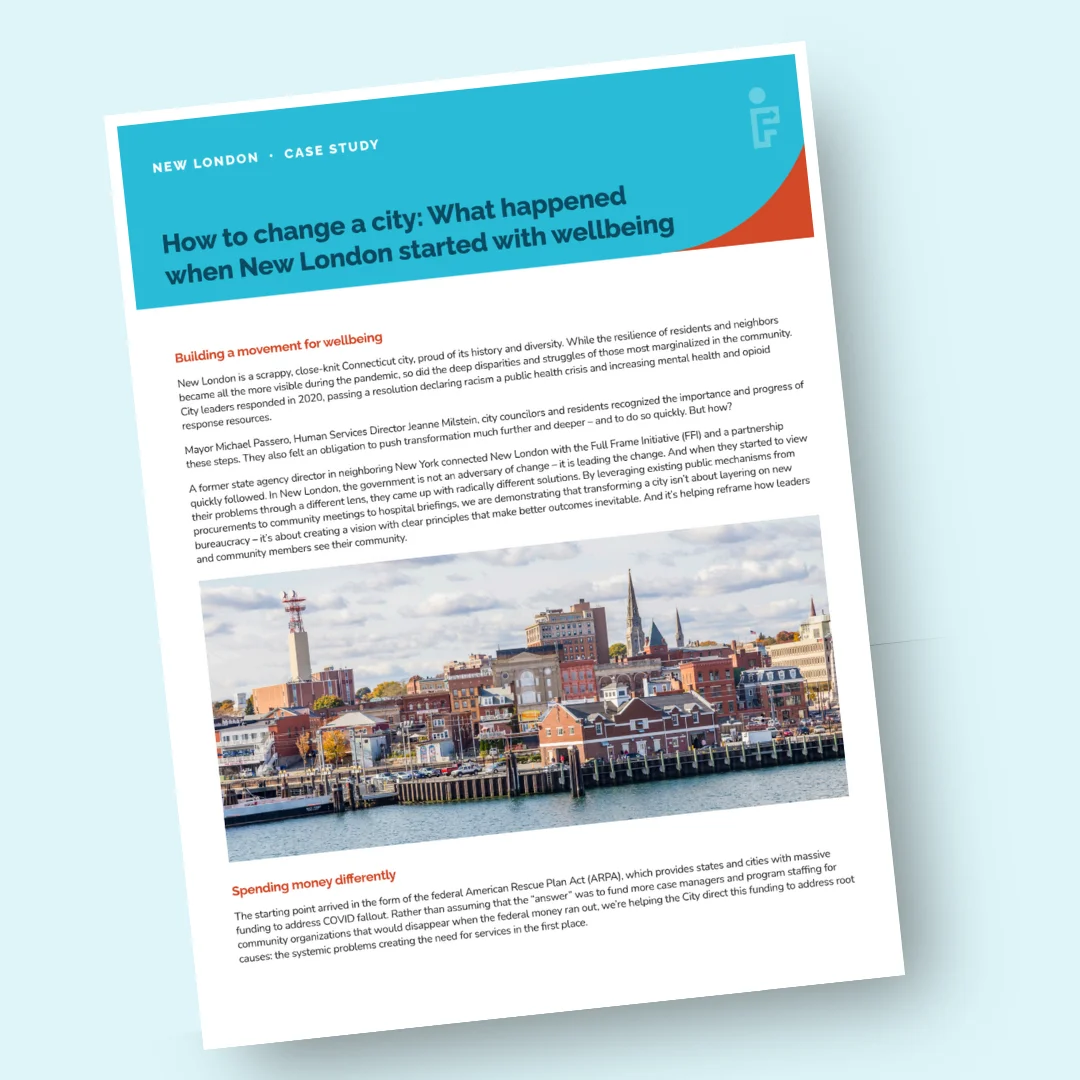
Learn how we partnered with the city of New London, CT to demonstrate how you can transform a city to focus on wellbeing – without layering on new bureaucracy.
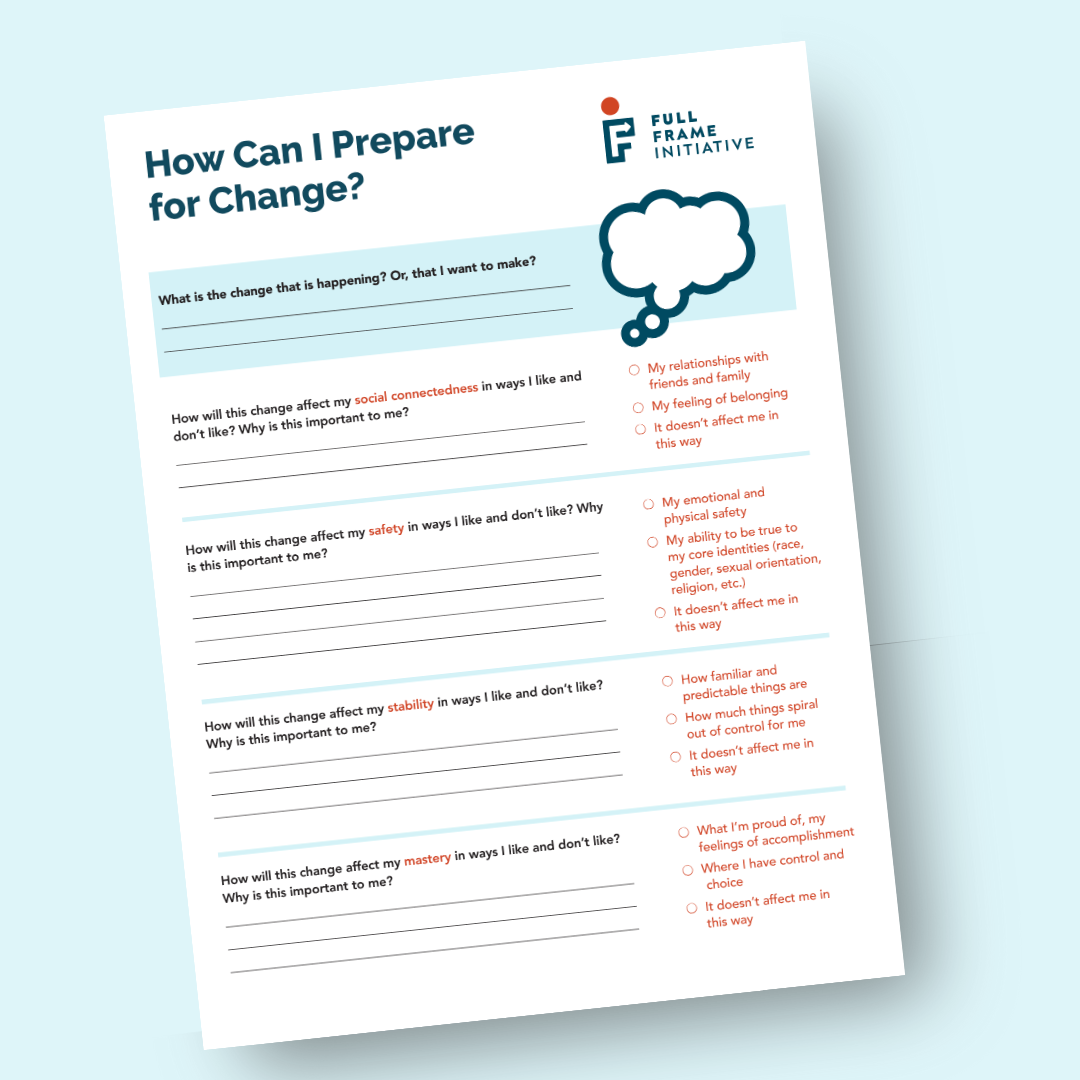
This resource helps individuals think through how they can prepare for change and anticipate the tradeoffs that come along with making a change or decision.
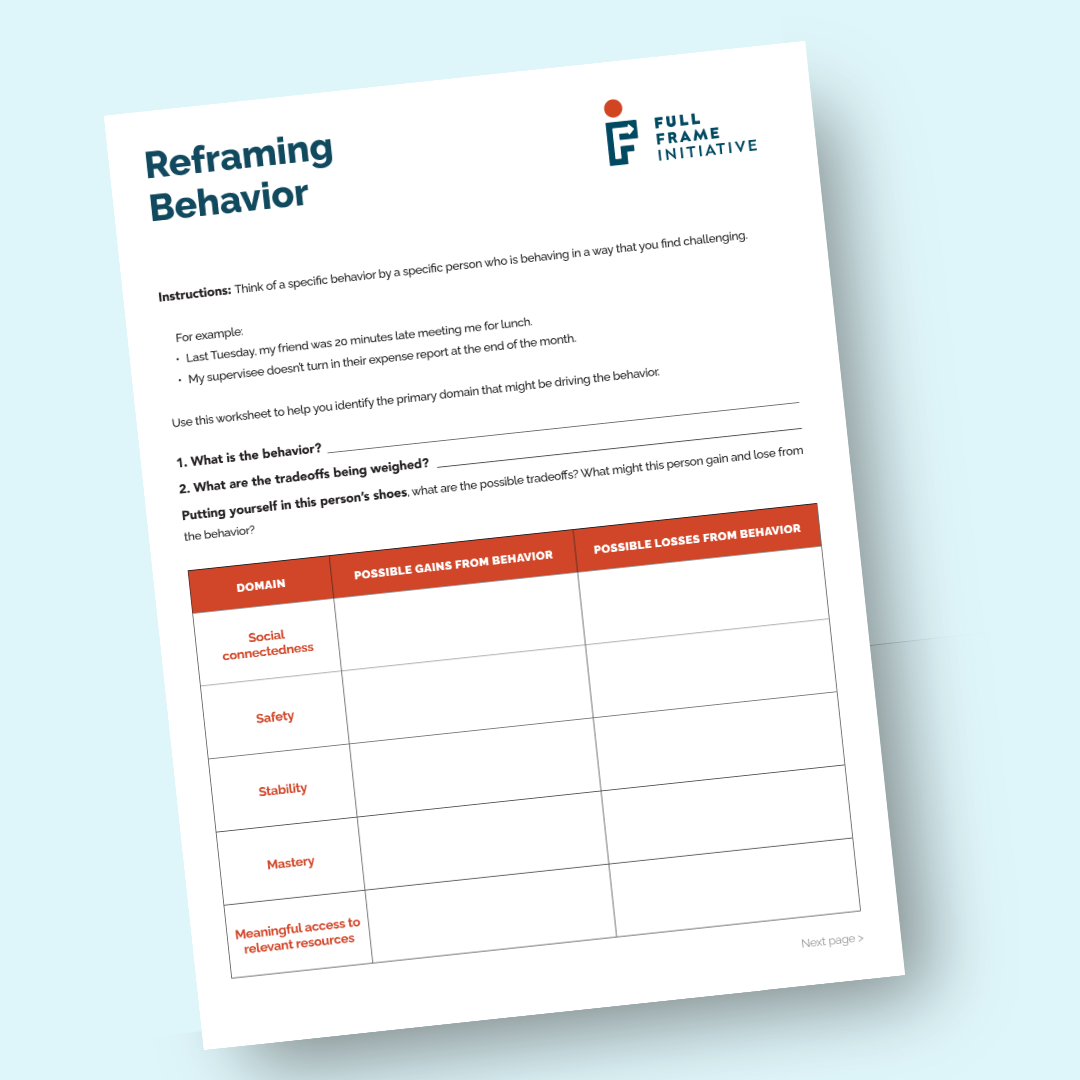
This resource is a worksheet that you can use to reframe the behaviors of anyone (friends, family, coworkers, clients, patients, etc.
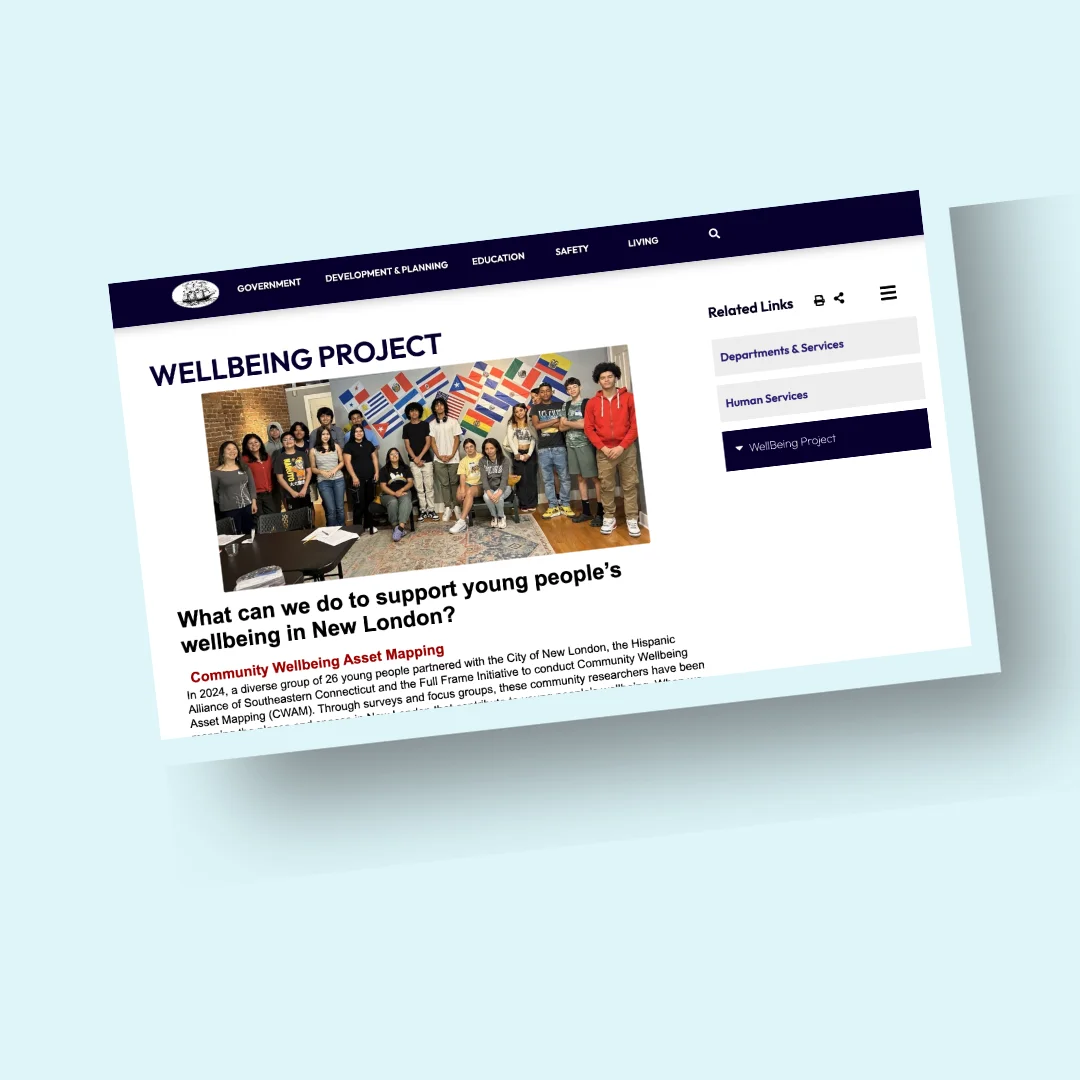
This website showcases the Community Wellbeing Asset Mapping process performed by youth in New London.
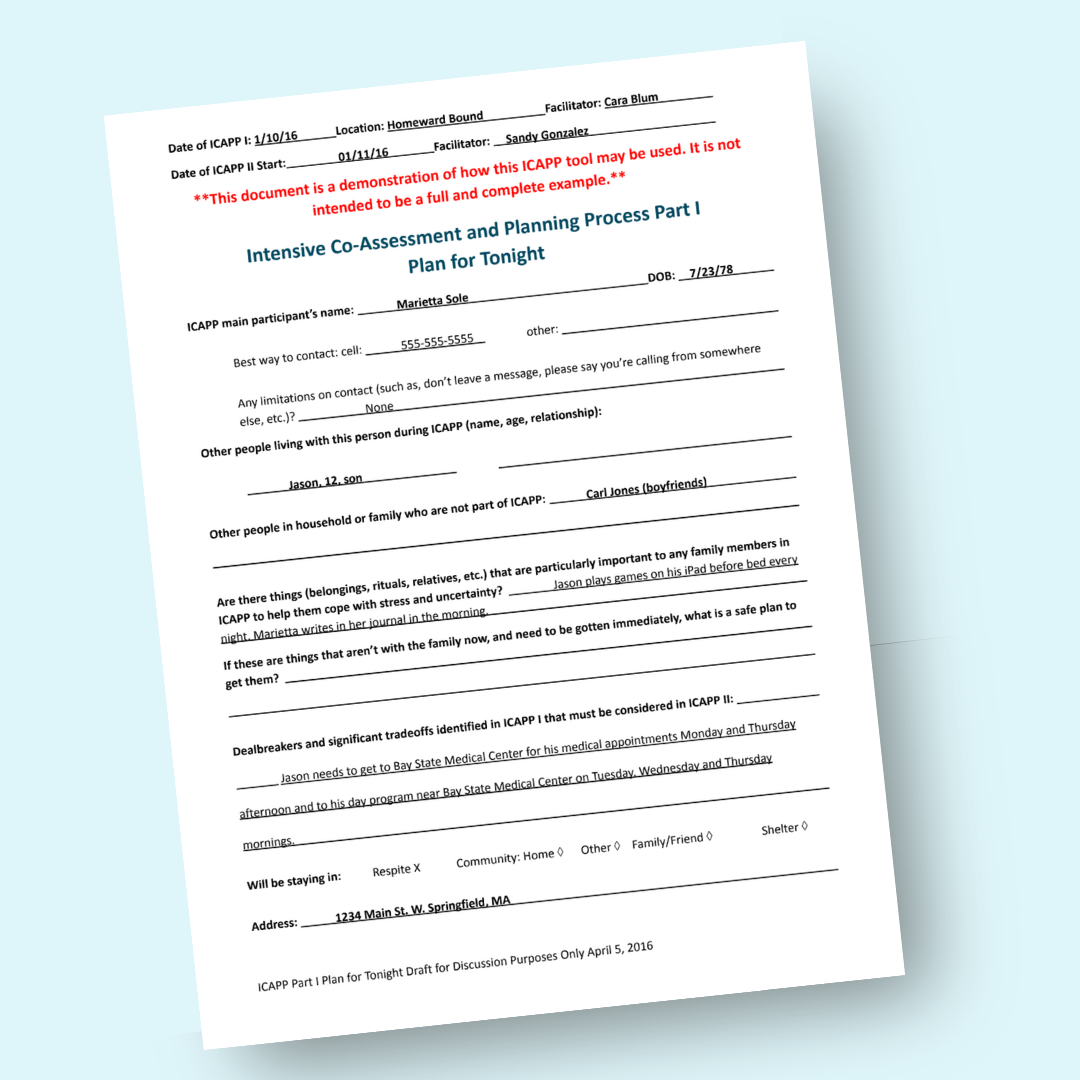
This is an example of how intake and assessment forms can consider wellbeing and tradeoffs in the domestic violence and homelessness fields.

Read the case study from FFI's work with the Wellbeing Learning Collaborative – a statewide effort exploring shifts in policy, practice and culture to strengthen systems' response to domestic violence.
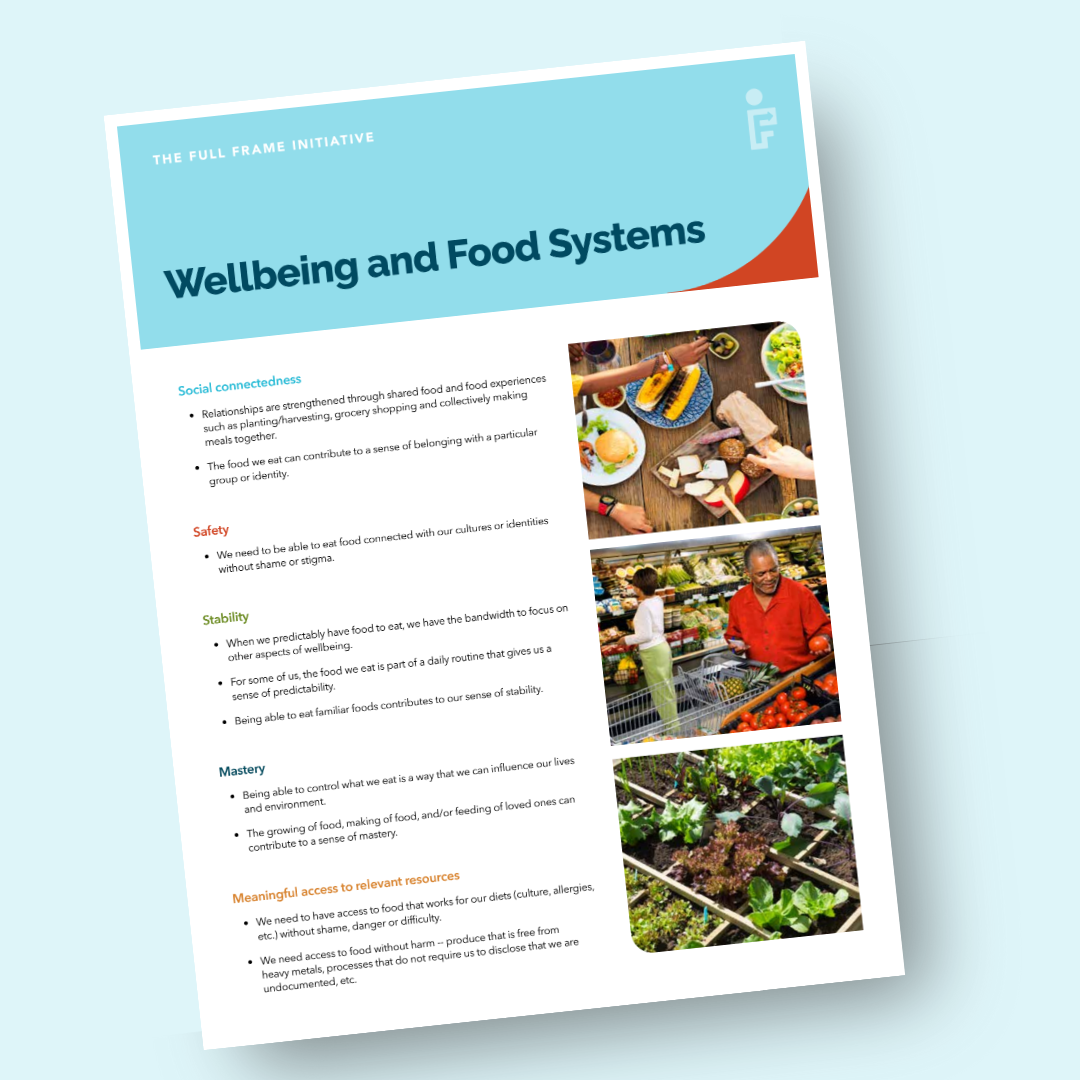
This resource looks at this food systems through the lens of the Five Domains of Wellbeing.
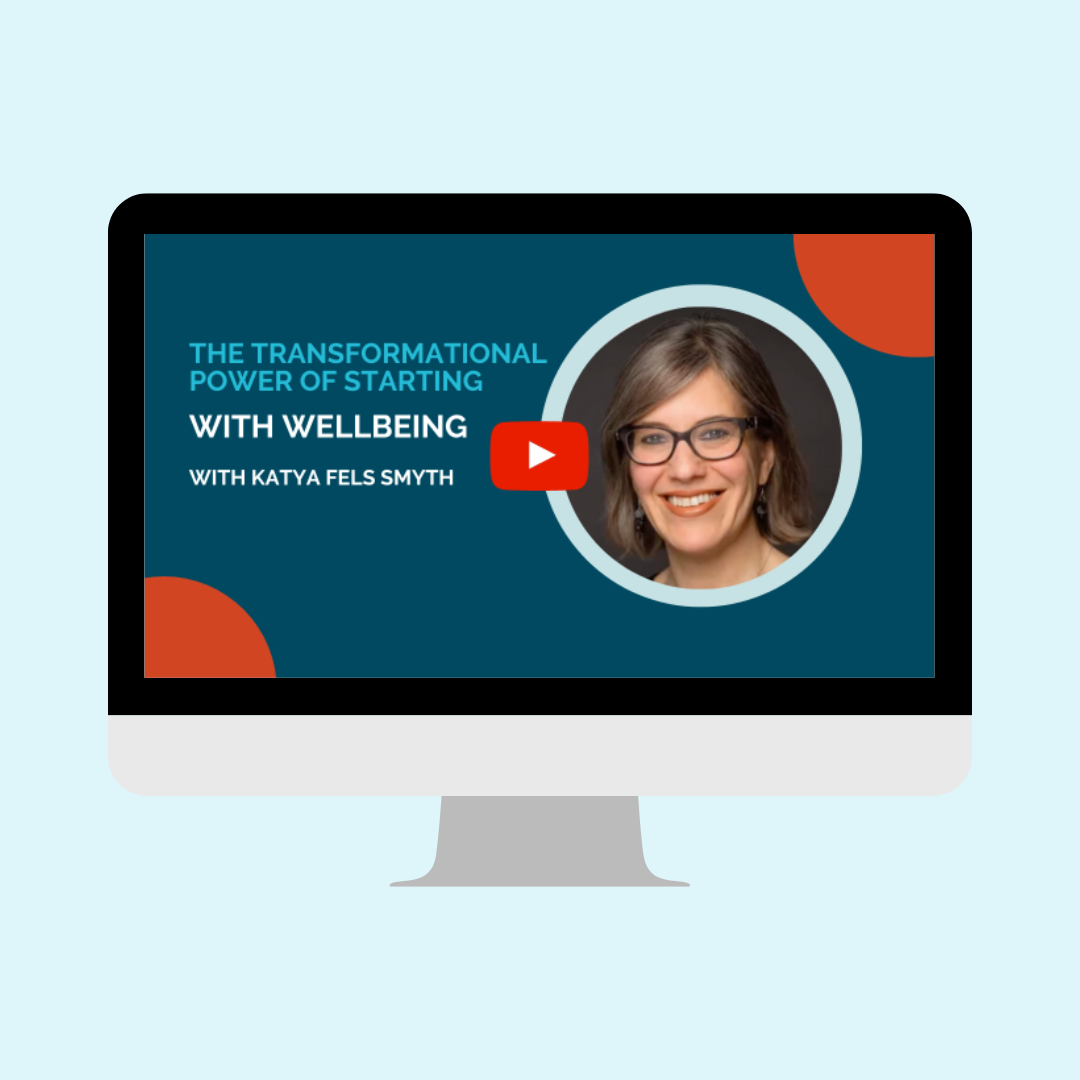
What would it look like if we shifted our focus from fixing problems to fostering wellbeing – the needs and experiences essential for health and hope? The webinar recording digs into what it means to change the narratives for systems change.